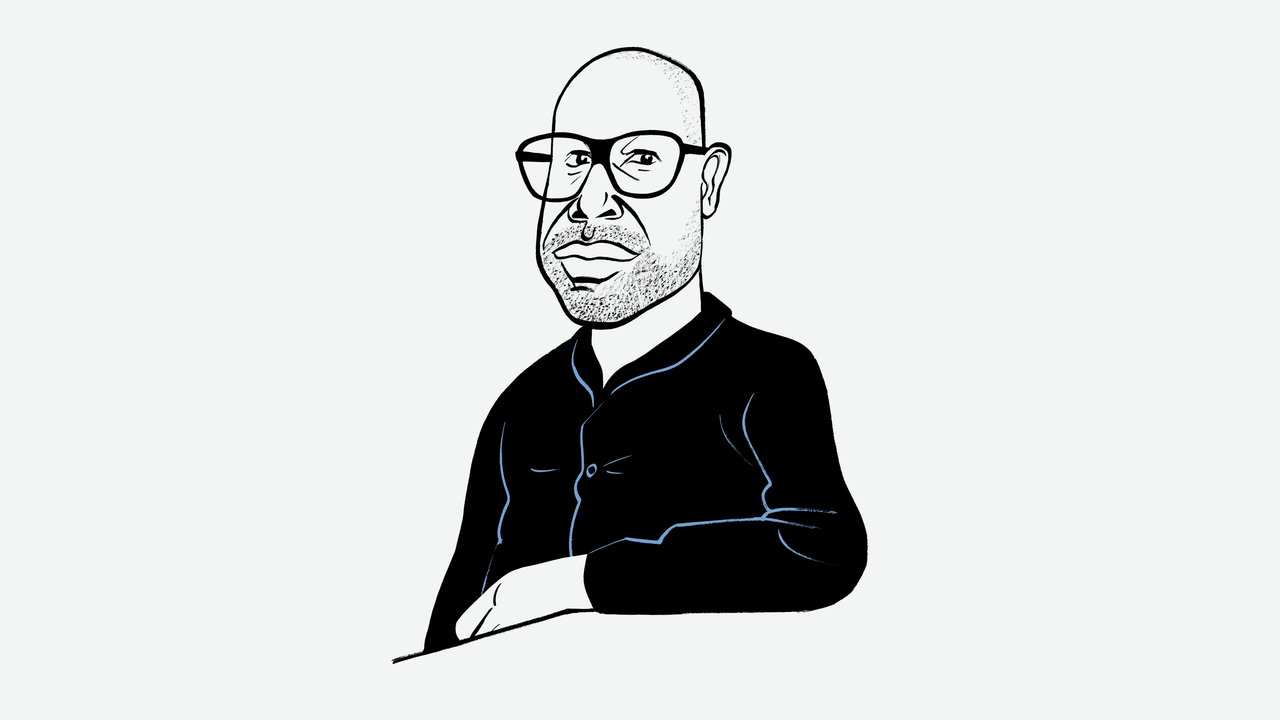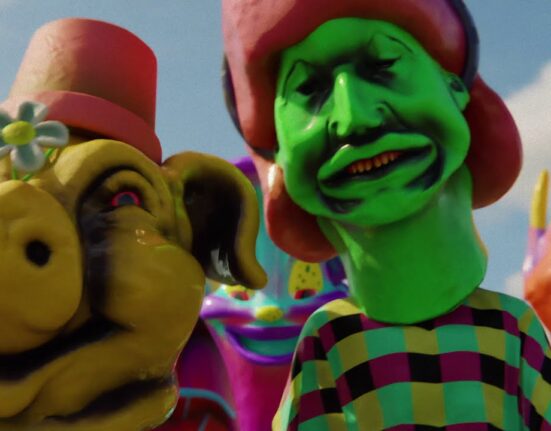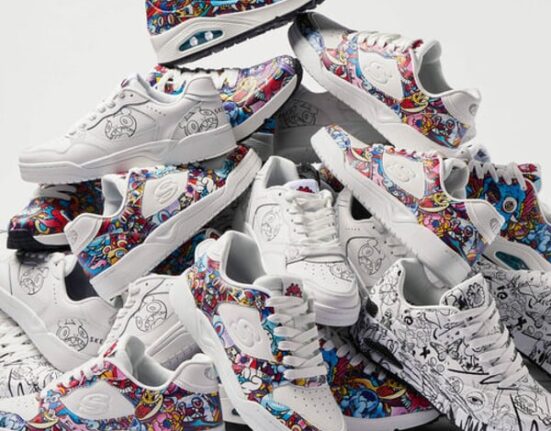The artist and filmmaker Steve McQueen sat down in the lobby of a hotel in Chelsea one recent Saturday evening. He was wearing a double-breasted cotton jacket, indigo jeans, and unscuffed leather shoes. As usual, he was in heavy-rimmed spectacles with rounded edges, like Yves Saint Laurent’s. It was McQueen’s last evening in New York, and he was taking a breather between engagements. Soon, he would be on his way to dinner with friends. Earlier, he’d been upstate, at Dia Beacon, attending a benefit for the museum, which houses large-scale works by artists including Louise Bourgeois, Richard Serra, Donald Judd, and, currently, McQueen himself. The gathering had left him irritated. The vibe? “People texting in a movie theatre,” he said. “Anything that can support the arts, for sure, I’m up for. But I wasn’t really happy being there. When people are talking loudly in these art works, it’s kind of, like, what’s the point? But the food was fantastic.”
McQueen, who was born in London to parents from Grenada and Trinidad, rose to prominence as a visual artist in the nineteen-nineties, but he is better known as the director of narrative films, such as “Shame” and the Oscar-winning “12 Years a Slave.” He had been in New York for a week to prepare his Dia Beacon installation, “Bass,” which consists of sixty light boxes set into the ceiling of the museum’s basement, with a soundtrack of improvised jazz. The color of the light boxes changes slowly—almost imperceptibly.
The artist had been making the commute from the city to the museum each day, five hours of driving in all. “This trip has been work—W-O-R-K, in capitals,” he said. On Monday, his “day off,” he took meetings at the Dia in Chelsea, where he will have a follow-up show in September. That exhibit will include “Sunshine State,” a video piece that combines footage of the surface of the sun with McQueen relating a violent encounter that his father, Philbert, experienced as a migrant fruit picker in Florida in the nineteen-fifties. The work, which has been shown across Europe, has appeared in the U.S. only once before. “It was shown in L.A.,” he said. He dropped his voice to a stage whisper: “Does that count?”
McQueen speaks bluntly. If posed a question he doesn’t like, he scrunches his nose and frowns, and says, “No, not talking about that.” After New York, he would be stopping in London for a memorial service for his former agent Jenne Casarotto, and then returning to Amsterdam, where he lives, to finish “Blitz,” his upcoming film about wartime London, starring Saoirse Ronan. All the travel gives him time to catch up on movies. “I like romantic comedies,” he said. “ ‘The Apartment,’ or ‘The Proposal’—all things that make me laugh are fantastic. And ‘The Devil Wears Prada.’ ” Would he ever make his own romantic comedy? “No,” he said. “Maybe. No.”
McQueen’s career is expansive. He has made films about a hunger strike, sex addiction, and a female-led heist. He won the Turner Prize, given annually to a British visual artist, in 1999. His recent projects have included “Small Axe,” a film series about the Windrush generation, and “Occupied City,” a documentary he directed which is based on a book by his wife, Bianca Stigter, about Amsterdam under the Nazis. “I just do stuff. I don’t ‘transition,’ ” he said. “You can think about it all fucking day. Thinking gets you to the edge of the diving board. Then you have to fucking do it.”
In 1993, McQueen lived in New York for about three months. He was studying film at N.Y.U. It did not go well. “It was a rigid way of doing things,” he said. “And I didn’t fit in.” He lived with an aunt and uncle in Brooklyn and commuted. “Because my family didn’t have a lot of money, my parents and my uncle put money together to pay for my tuition.” One day, he told his mother he wanted to go home. “I was on the phone with my mum, lying on my bed, and having the sensation of tears coming out of your eyes and falling into your ears.” He traced a line above his cheekbone. “I will always remember that.”
A hotel concierge stopped by to deliver a copy of the Times. The concierge, an aspiring screenwriter named Shannon Owens, later mentioned that he used to watch McQueen’s Oscar acceptance speech “all the time.” Owens is working on a script about a failed writer inspired by the artists who used to live in the Chelsea Hotel. “My dream is to win an Oscar,” he said. “When I see him, I see that’s possible.”
McQueen thanked him. “That was nice,” he said. After a while, he launched into a lesson. “You know what, mate?” he said. “Let me tell you something. Go out with two guns blazing.” ♦







